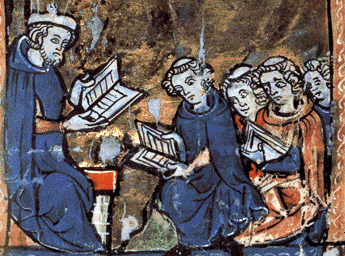Hrólfs saga kraka — chs 34-35 §35.2
Drag the words in the Old Norse text onto the corresponding words in the translation (this won’t work if a translation has not been entered into the database). | |
|
|
|
Teaching text: translation
Here you can test your Old Norse translation skills by connecting words in the Old Norse text with a translation (if a translation has been entered into the database).
Drag with your finger or mouse the words in Old Norse onto the corresponding words in the English translation. If you are correct, the word will stay and the Old Norse word will be highlighted. If you don’t match the words correctly, the Old Norse word will return to its old position.
Note that translations are subjective and there is never a full word-to-word correspondence between the text and translation. If you notice any mistakes in the site, email the database editor. Where a word in the Old Norse cannot been translated directly ‘[...]’ will appear in the translation and corresponds to the untranslated word. Some Old Norse words will have been translated with more than one English word — these appear together in the same box.
